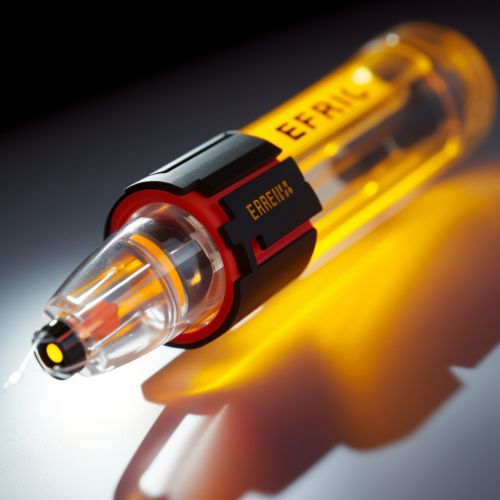Anaphylaxis
Introduction
Anaphylaxis is a severe, potentially life-threatening allergic reaction that can occur rapidly after exposure to an allergen. It is characterized by a number of symptoms including difficulty breathing, swelling in the throat, a sudden drop in blood pressure, and dizziness or loss of consciousness. Anaphylaxis requires immediate medical attention, including an injection of epinephrine and a follow-up trip to an emergency room. If not treated properly, anaphylaxis can be fatal.


Causes
Anaphylaxis is caused by an overreaction of the body's immune system to a substance that it recognizes as harmful, even though it may not be. These substances, known as allergens, can include certain foods, medications, insect venom, and latex. Some people may also experience anaphylaxis from exercise or exposure to cold temperatures or sunlight.
Symptoms
Symptoms of anaphylaxis can vary from person to person and can range from mild to severe. They typically appear within minutes to an hour after exposure to the allergen. Symptoms may include:
- Skin reactions, including hives, itching, and flushed or pale skin
- A feeling of warmth
- The sensation of a lump in your throat
- Wheezing and difficulty breathing
- Rapid, weak pulse
- Nausea, vomiting or diarrhea
- Dizziness or fainting
Diagnosis
Diagnosis of anaphylaxis is primarily based on the symptoms and signs that present during an episode. A doctor will also take into account the patient's medical history and may perform tests to confirm the diagnosis and identify the allergen. These tests may include a skin prick test, a blood test, or an intradermal test.
Treatment
The first and most important step in treating anaphylaxis is to administer epinephrine as soon as possible. This can be done with an autoinjector, such as an EpiPen. Following this, the person should be taken to an emergency room for further treatment and observation. Other treatments may include antihistamines, corticosteroids, and oxygen therapy.
Prevention
Preventing anaphylaxis primarily involves avoiding known allergens. This can be challenging, as allergens are often common and can be found in many different environments. For those with known allergies, carrying an epinephrine autoinjector can be a lifesaving measure. Some people may also benefit from immunotherapy, a treatment designed to desensitize the immune system to specific allergens.
